Members of the PIPOL association are friends and families of children diagnosed with or cured of leukemia and other malignant diseases. Their work is focused on improving the quality of life for these children and people in their surroundings.
Association's President and social worker Amra Saračević shared with us how was the Association established, and what is their mission and activities.
How was the PIPOL association established? What changed from the beginning to this day?
The PIPOL Association was founded by friends and families of children with leukemia and other malignant diseases in the Tuzla municipality.
In the late 1990s, there was a significant rise in the number of children diagnosed with cancer in Tuzla. According to the official statistics, to this day, Tuzla remains the city with most children with cancer in BH, with an average of 12-16 new cases registered every year.
Since the Clinic for Children's Diseases of the UKC Tuzla didn't have sufficient hospital capacities to meet the demand, children with cancer from Tuzla had to seek treatment in Sarajevo, other regional centers, or even in Western Europe.
Therefore, apart from dealing with challenges brought on by their child's disease, the parents also had to struggle to find additional financial resources to cover the treatment costs and overcome many administrative obstacles. In addition, they could only visit their child for three hours per day, which meant that those parents that couldn’t afford to rent an apartment in Sarajevo were often could not see their child for seven months or more.
Families of children on waiting lists of health centers in Western Europe had an entire set of additional problems like long waiting lists, parent's absence from work, and being separated from other family members. The difficulties they faced often also led to their exposure to social stigma and prejudice, especially for people from smaller or rural communities.
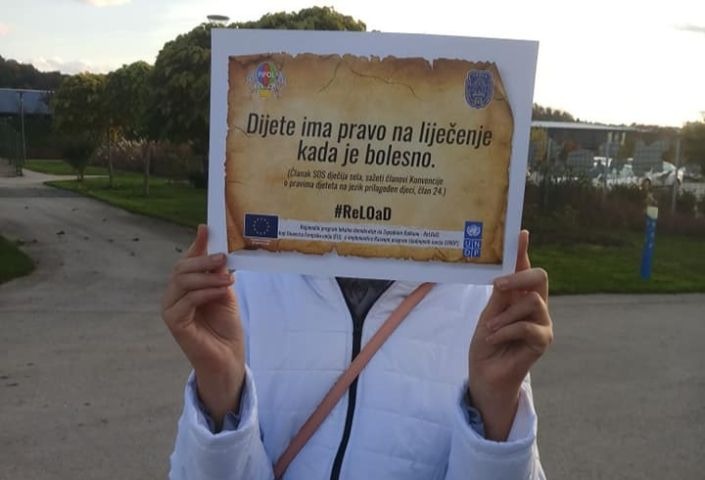
At the end of 2006, the Federal Association for Children with Cancer proved unable to meet the needs of this user group. Because of that, three mothers Enisa Milinović from Tuzla, Sadija Osmanović from Lukavac, and Vahida Isić from Srebrenik, with the support of city officials of Tuzla and its mayor Jasmin Imamović, founded the PIPOL association and registered it in January 2007.
The PIPOL association was registered under the number 394 in the Ministry of Justice and Tuzla municipality management. The Association’s activities are to be focused on providing financial and psychosocial help to children with cancer and their families, locally and internationally, improve the quality of treatment in the local clinical center, as well as the quality of rehabilitation and resocialization that follows, assist and support these children and their families to exercise their social rights and access to health care and education, contribute to raising awareness regarding the needs and problems of children with cancer from Tuzla.
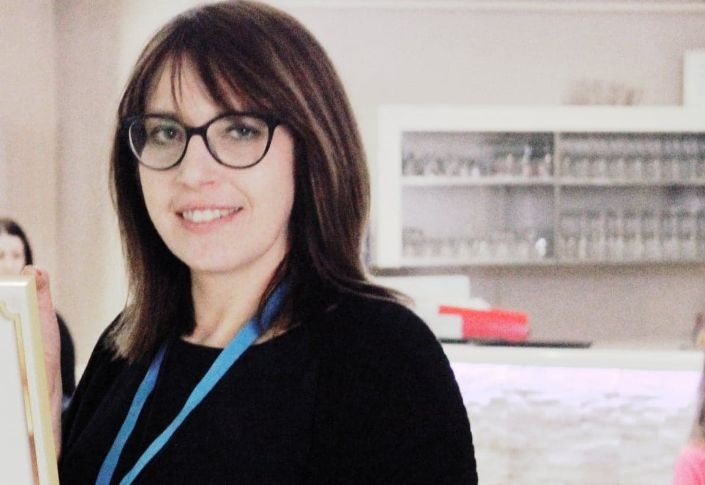
What was your motivation to work in the nonprofit sector?
Cancer affects not only the person diagnosed but also his or her entire family. Even though the child undoubtedly suffers the greatest burden, the long fight against the disease leaves a mark on all family members.
Imagine being that child and not being able to do your homework, help around the house, or take part in things that children your age do. Seeing your loved one's giving their all to fight the disease, you feel you need to help them and carry the part of the burden. It's no wonder that these children grow up too quickly. If you are one of the lucky ones, you'll go through it all when you're little and won't remember the ups and downs that your parents had to face. But if you're old enough to remember, apart from the hard times, you will remember all the good people you met on the way, and who became like family. It's often the case that after their battle finishes most consider their human and moral duty to provide the others facing the same challenges with the support they had.
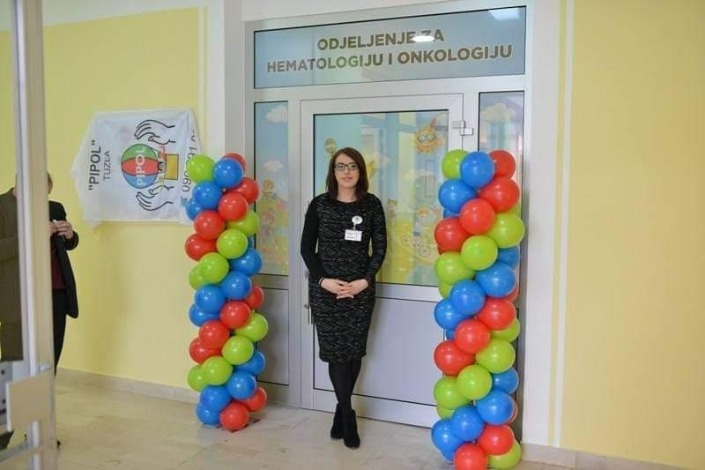
My brother is a cancer survivor, and I think that might have been the main reason why I chose this career. I wanted to help create a better world for all socially disadvantaged individuals and groups, so after high school, I enrolled in the university and entered a social work program.
During my time in university, I also volunteered in the Association. I wrote projects, did fundraising for our activities, and participated in their implementation. Since I didn’t manage to find employment in one of the social or health care institutions after graduation, I continued to volunteer my time in the organization. Soon after, I was named President and assumed the responsibilities of running the organization.
What motivated me to learn how to write project proposals following the European standards and methodology were my personal goals and the strong desire to ensure the continuity of our small organization. Later, that shaped my career path and led to my position as a project manager.
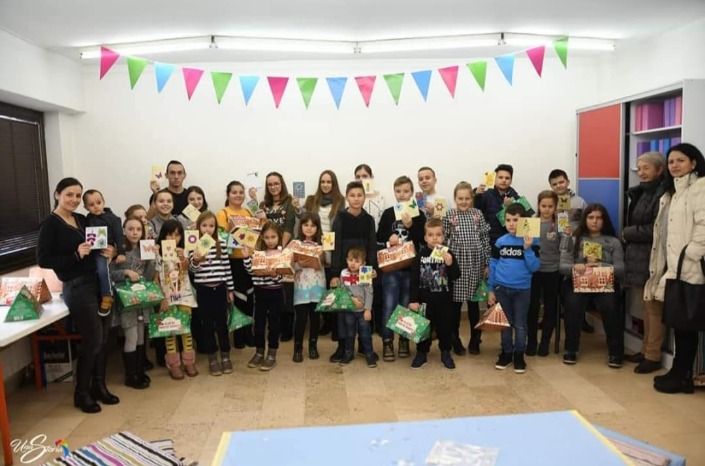
How did the COVID-19 crisis affect the Association’s work? How much has the way you operate changed? What activities were you focused on recently?
The COVID-19 pandemic is a global challenge, but its consequences are mostly felt locally, among ordinary people, especially those belonging to vulnerable categories.
Despite the size of our association, we take on big challenges to help "our" children and their parents as much as possible. Since our main source of funding comes from grant programs, the COVID-19 pandemic had a serious impact on our work.
Apart from the help of the local government, which increased the dedicated funds for the support of the most vulnerable categories of our community, most local authorities and socially responsible companies withdrew or reduced available funding for projects aimed at helping the most vulnerable populations, including children with cancer.
Despite that, companies like BH Telekom helped us pull through. As a part of their initiative to help socially and economically disadvantaged children follow online classes, they donated eight laptops for children with cancer. Also, at the beginning of the pandemic, socially responsible companies Violeta and Argeta Atlantic Group, helped us purchase and distribute aid packages with food, hygiene supplies, and protective masks to our beneficiaries.
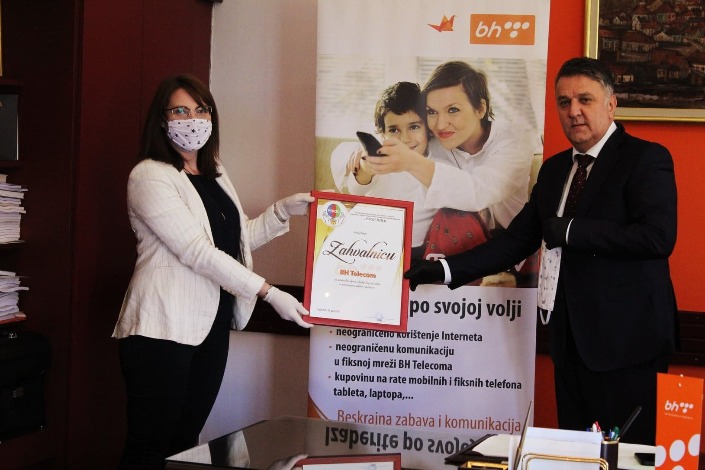
Another project we carried out during this time was "I CANcer, WE CANcer", Which was aimed at providing psychosocial assistance and support to our beneficiaries and reduce the negative effects of the pandemic and subsequent social isolation would have on them. The program was implemented with financial support from the city of Tuzla, and in cooperation with the UNDP BH and the EU delegation, as part of the Regional Programme of Local Democracy in the Western Balkans – ReLOaD.
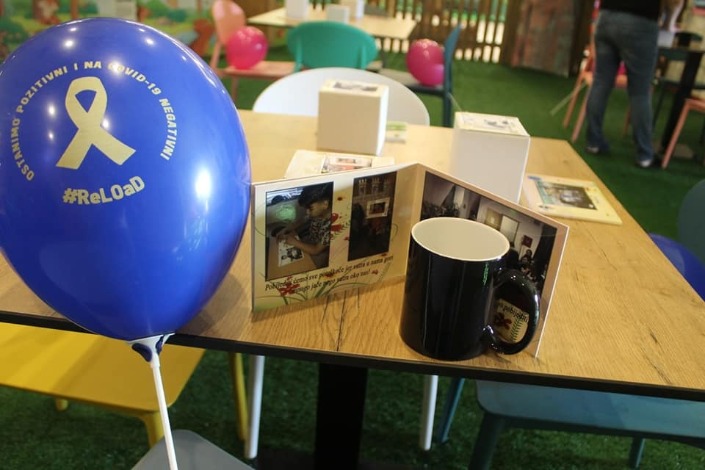
Following the success of the "I CANcer, WE CANcer" project, again with the support of the city of Tuzla, UNDP BH, and the European delegation, we carried out another project within the ReLOaD framework. From September to the end of October 2020, following the epidemiological measures in effect, we carried out many activities aimed at mitigating the negative effects of COVID-19 on children with cancer and their families. We distributed complete sets of school supplies for children with cancer and their siblings, as well as family aid packages containing hygiene and disinfectant products, pajamas, didactic materials, and hand-made protective masks. We also held a number of educational, recreational, and engagement workshops (e.g. how to make jewelry, decorations, photo books with motivational quotes, personalized magic cups) with an aim of providing psychosocial support.
In conclusion, we consider that we managed to align our activities and available financial resources with the current circumstances and needs of our users.
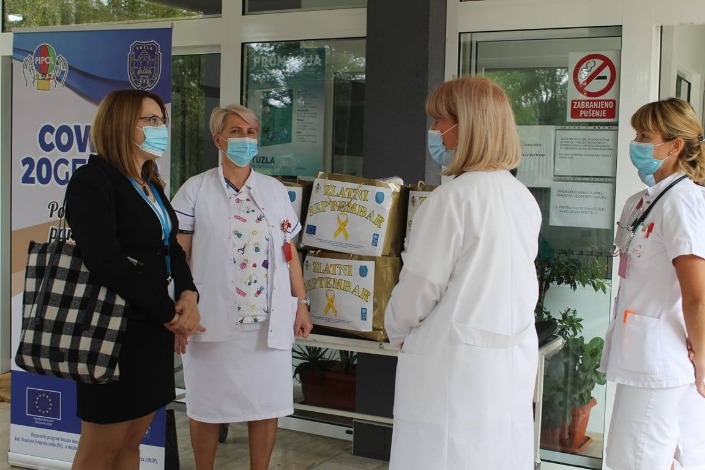
Which activities are you most focused on at the moment?
Due to the ongoing COVID-19 pandemic, all our activities are still focused on mitigating the negative effects on our beneficiaries. In the upcoming period, owing to the support from the city of Tuzla, we will continue to provide psychosocial assistance and support to our members through the project "Let's beat the pandemics and cancer" (Pobedimo pandemiju i mRAK).
The year 2020 was extremely difficult for everyone, especially our beneficiaries, and I consider that they deserve to experience something nice to remember this year by. Traditionally, we celebrate Days of Children’s Joy at the end of the year during the winter holidays. This year, we plan to do the same, but in a special way and respecting all epidemiological measures.
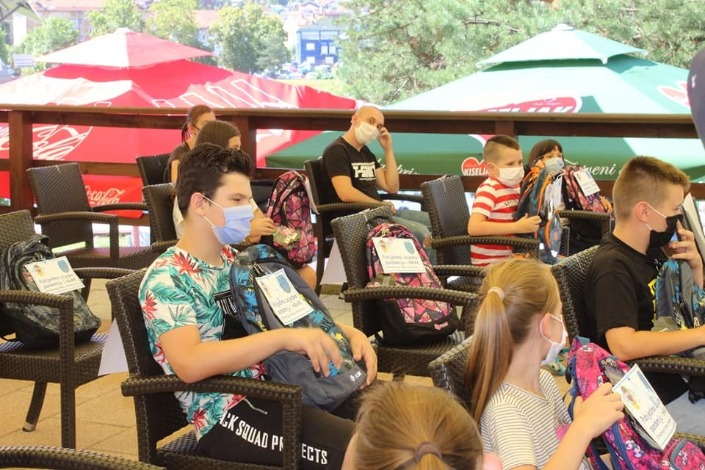
Where does your funding come from? Which types of donors do you work with the most and in what way? How can someone support your work?
PIPOL association relies on applications to calls for proposals and grant programs for funding of all of our projects.
Unfortunately, we rarely receive donations, which is why all our activities and support are restricted by the project framework. In turn, that means that we’re not always able to support our users in the way they need it. Because of that, we hope that people and socially responsible companies will eventually recognize the work that we do for children with cancer, especially since we manage to achieve significant results with far fewer resources and staff than most organizations that work with this user group.
Every crisis also offers a window of opportunity. It turned out that in these circumstances our experience and knowledge in proposal writing proved to be very valuable. Unlike the non-profits that rely on donations for their operations, which were unable to respond adequately to their beneficiaries' needs, we were able to apply to calls for proposals and get funding for our projects from international organizations like UNDP and EU. That allowed us to promptly respond to substantial challenges, brought on by the COVID-19 pandemic, that significantly affected children with cancer and their families.
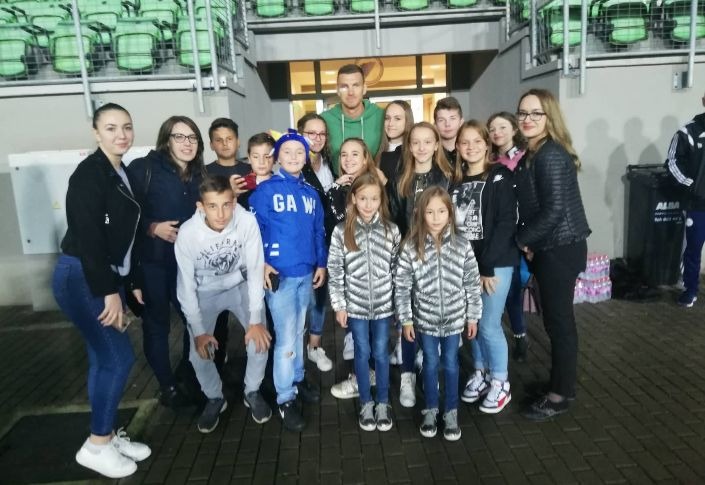
Those who want to support our mission can donate in the following ways:
- via Unicredit bank account number 33863 022 00 84 3330 or foreign currency account number BA39 3386 3048 0533 3488, SWIFT: UNCRBA 22.
- Helping us gain the following: office space, office supplies, a dedicated vehicle for our field team
- By calling 090 291 006 (BH Telekom) and donating 2KM for activities directed at helping children with cancer
- By donating in-kind: pajamas, underwear, socks, slippers, hygiene, disinfectant, and food products, presents for New Year's, and didactic materials. For more information on in-kind donations please contact us at our office e-mail: udruzenje_pipol@hotmail.com or mobile 00387 61 200 636.
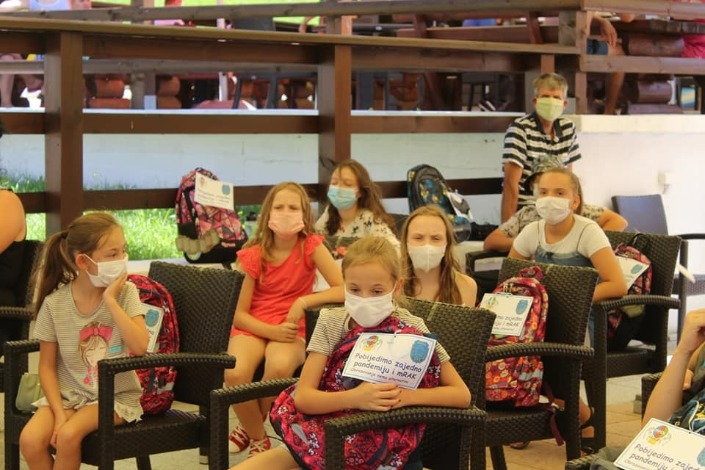
How does PIPOL contribute to the development of philanthropy in BH?
Since our Association's establishment in 2007, we have carried out many initiatives, activities, and projects aimed at supporting children with cancer from Tuzla municipality, Brčko District, and all those who have the right to be treated in the Tuzla municipality.
What is unusual about Association is the fact that we don’t have an office, so we handle all our work from our homes. Because of that, we found it fairly simple to adapt to the "new reality" of working from home, since for us, that has always been the case.
We mostly use our own equipment and supplies, and all activities and projects are carried out by our members—cancer survivors and their parents, brothers, and sisters, who despite other responsibilities in their life, volunteer their free time for this cause and contribute to the development of philanthropy in BH. Since the Association doesn't own a vehicle, members of our field team that provide material and psycho-social assistance to beneficiaries are forced to use their means of transportation.
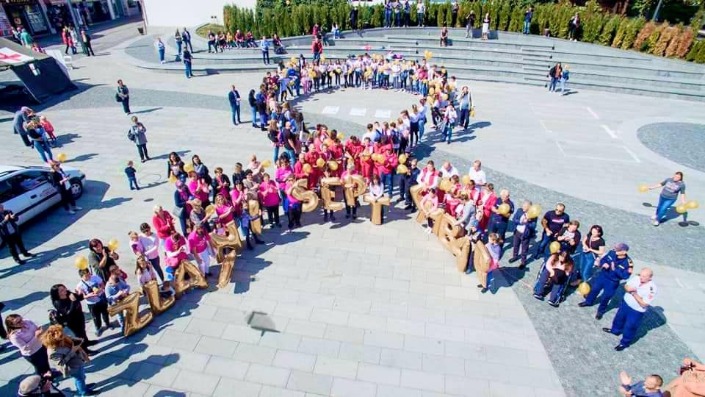
However, everything we lack in resources and equipment, we compensate with a lot of love, creativity, adaptability, persistence, patience, and a strong desire to succeed, persevere, and reach our goals. Apart from the financial cost, all our projects and activities have hidden costs that can't be measured—our time, energy, and resources that we invest to help those battling cancer.
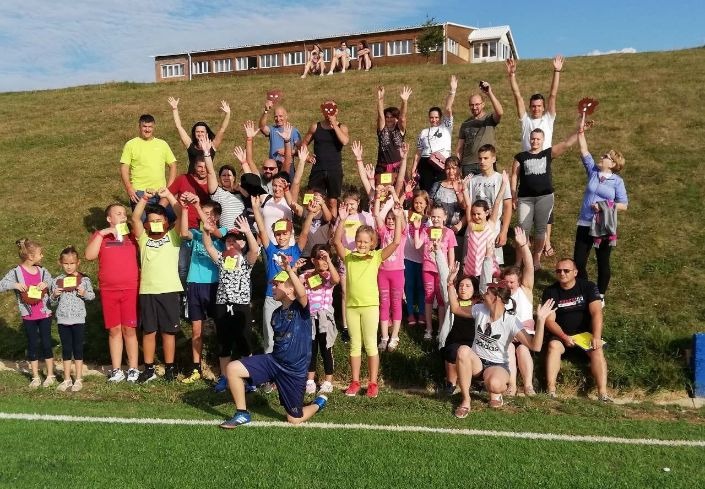
What are the biggest challenges you face?
The biggest issue we have is the lack of an office, essential equipment, and association owned vehicle for fieldwork.
Another problem is that all of our staff is there voluntarily. Having someone employed full time would significantly improve our organizational capacities and allow us to better support our beneficiaries.
Also, because of the pandemic, many calls for proposals we applied for in the previous years that provided funding for our activities and projects, were not announced or had been canceled. Because of that, we hope that we'll gain greater support from our community and state officials, which would allow us to continue to support our beneficiaries and community's growth.
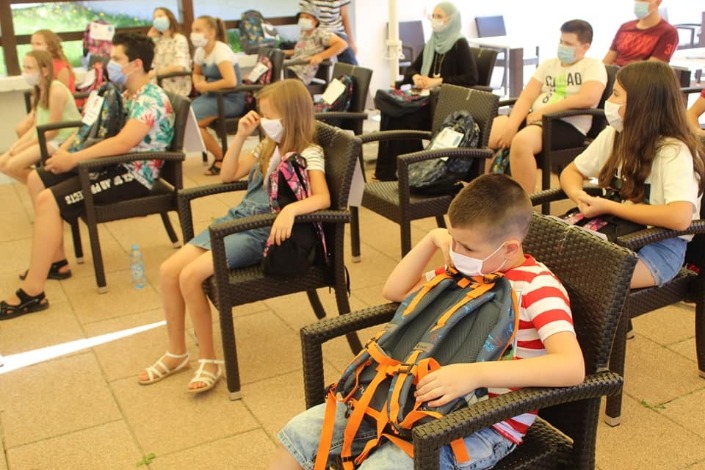
What do you consider the greatest achievement in your work so far and what are your future goals?
I consider the adaptation and reconstruction project of the Hematology and Oncology ward at the Clinic for Children's Diseases in UKC Tuzla our greatest success. After ten years of lobbying, owing to the support of the City of Tuzla, several governmental institutions, local authorities, and socially responsible companies, and in cooperation with UKC Tuzla, we fully renovated, adapted, and equipped the ward following the latest building and health standards.
As a result, since 2017, instead of being sent to Sarajevo, children diagnosed with cancer could get complete diagnostic testing, long-term hospital treatment, and monitoring in the Hematology and Oncology Ward at the Clinic for Children's Diseases, in Tuzla.
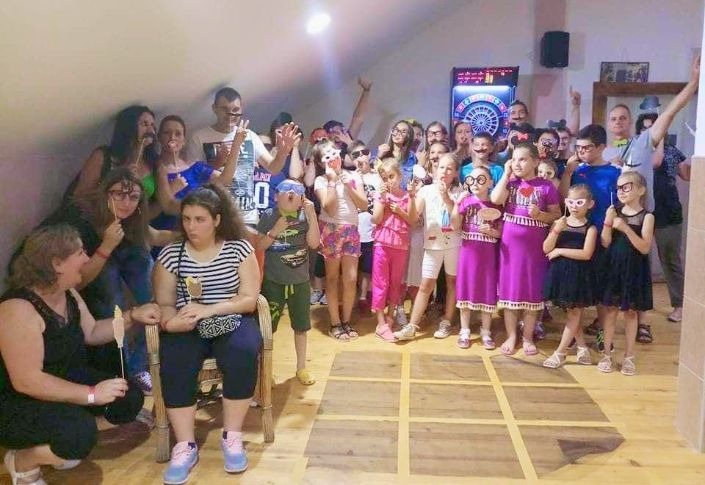
During the last four years over 35 children received hospital treatment in four walls of the ward. Especially important was the fact that mothers were also allowed to stay with their kids for 24 hours during the entire course of the treatment, something that wasn't allowed anywhere else in BH.
Even though that many municipalities, city officials, and even organizations working with cancer patients didn’t take part in this project, they all now use the services of the ward. Despite all that, we are happy that our biggest wish came true – all children living in the Tuzla municipality can now get complete hospital treatment and monitoring close to their homes and families.
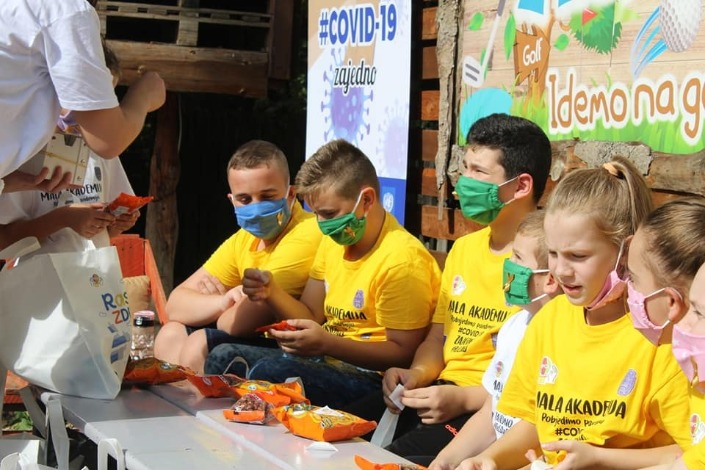
What are the most important plans and goals that you will work on in the future?
We want to continue to provide comprehensive assistance and support to children with cancer, strengthen our organizational capacities, introduce innovation, rise existing standards, and make the impossible possible. Above all, we want to show that true change is achieved by little people who dream big, engaging themselves both personally and professionally to make the dreams of a better world for children with cancer and their families come true.
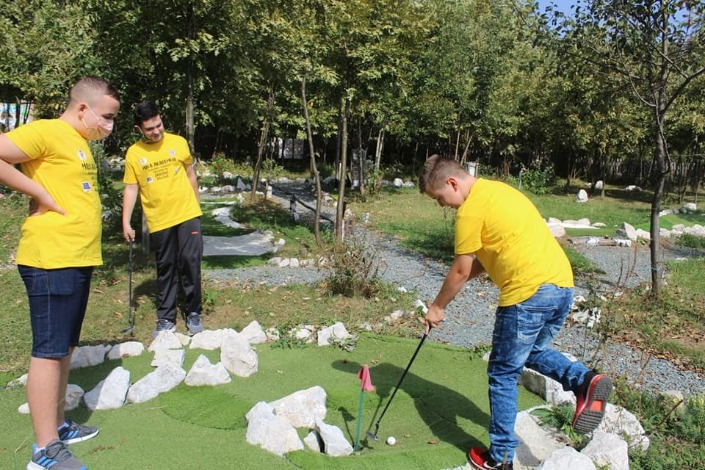
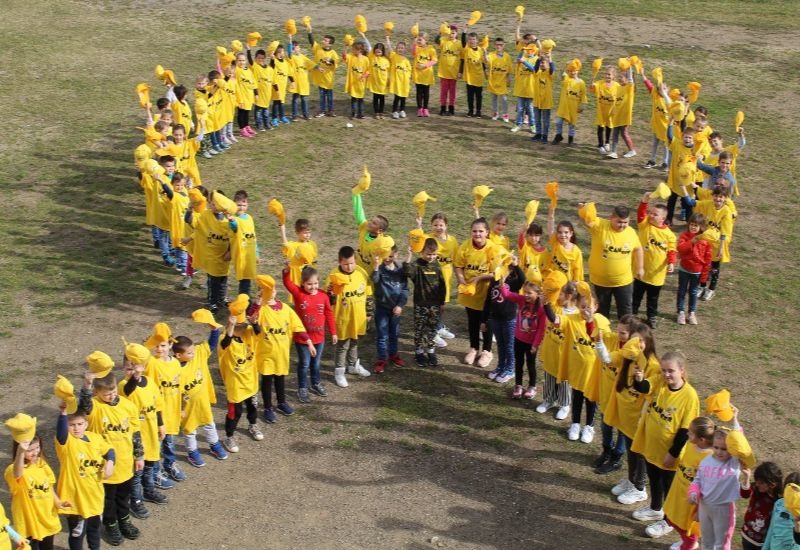

Leave a comment